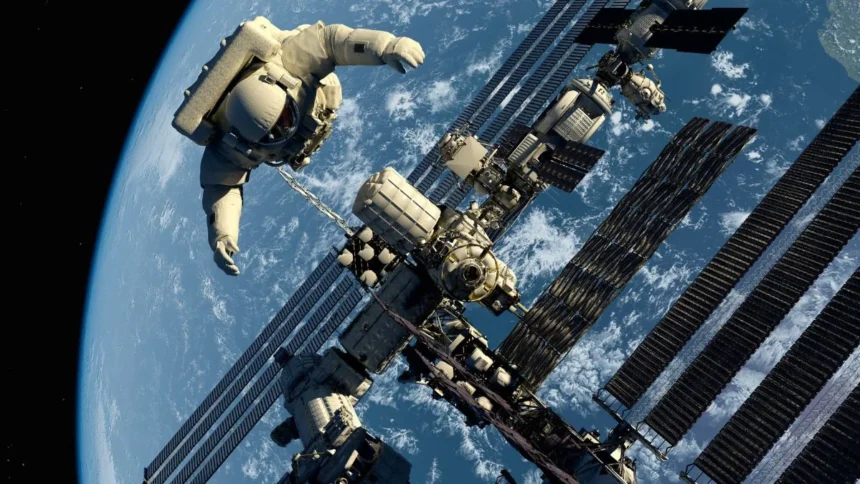Space exploration is one of humanity’s greatest achievements and continues to reveal the vast, awe-inspiring nature of our universe. It involves the use of astronomy, engineering, and technology to explore beyond Earth’s atmosphere, enabling the discovery of celestial bodies, the study of distant galaxies, and an understanding of fundamental cosmic principles. This article will delve into the significance of space exploration, the milestones we’ve reached, and the future of humanity’s journey into the unknown.
The Dawn of Space Exploration
Space exploration began with the advent of rocketry. In the mid-20th century, countries like the United States and the Soviet Union began developing technologies that would eventually enable the first human-made objects to enter space. The launch of Sputnik 1 by the Soviet Union in 1957 marked the start of the space age, proving that humanity could break free from Earth’s gravitational pull.
The subsequent achievements were groundbreaking: from the first human, Yuri Gagarin, orbiting the Earth in 1961, to the American Apollo missions landing astronauts on the Moon in 1969. These milestones spurred further space exploration, with the establishment of space agencies such as NASA, which would lead the charge for more ambitious projects.
The Role of Satellites and Probes
One of the most significant aspects of space exploration is the development and deployment of satellites and space probes. These instruments have allowed humanity to study distant planets, stars, and galaxies, providing invaluable information about the composition, behavior, and characteristics of objects beyond Earth.
Satellites, which are often launched into orbit around Earth, help monitor everything from climate patterns to communication systems. Space probes, however, are the unsung heroes of space exploration, traveling to far-off destinations like Mars, Jupiter, and the outer edges of the solar system. Notable missions include NASA’s Voyager probes, which have traveled beyond the influence of the Sun’s gravity, and the Mars rovers, which have given us a glimpse into the geology and potential for life on the Red Planet.
The Search for Life Beyond Earth
One of the central goals of space exploration is the search for extraterrestrial life. Scientists have long speculated that life could exist on other planets, moons, or even in the distant reaches of space. The discovery of extremophiles on Earth—organisms that thrive in the most hostile environments—has fueled this hope.
The ongoing exploration of Mars and its moons, such as Europa and Enceladus, has become a key focus in this search. These places are thought to harbor subsurface oceans, raising the possibility that microbial life could exist in these isolated environments. Future missions, such as NASA’s Artemis program, will continue to pave the way for deeper exploration of these worlds.
Technological Advancements in Space Exploration
Over the decades, space exploration has spurred remarkable advancements in technology. From the development of space shuttles and rovers to the construction of space stations like the International Space Station (ISS), these innovations have not only expanded our understanding of space but have also improved life on Earth. Technologies such as GPS, satellite communication, and medical devices have all benefited from the technological spin-offs of space research.
Moreover, as the capabilities of space technology continue to grow, private companies like SpaceX and Blue Origin are entering the field, pushing the boundaries of what is possible. The development of reusable rockets, such as SpaceX’s Falcon 9, has drastically reduced the cost of space travel and made the dream of space tourism a potential reality.
The Future of Space Exploration
The future of space exploration holds immense potential. Plans to return humans to the Moon under NASA’s Artemis program are underway, with astronauts expected to land on the lunar surface by 2025. This mission aims to establish a sustainable human presence on the Moon, paving the way for the eventual colonization of Mars.
Mars, the “Red Planet,” remains one of the most exciting destinations for space exploration. NASA’s Perseverance rover, along with private entities like SpaceX, are working towards sending humans to Mars, with hopes of establishing permanent settlements by the 2030s. The knowledge gained from these missions could fundamentally change our understanding of life in the universe and our place within it.
Space Exploration’s Impact on Humanity
Space exploration has already had a profound impact on humanity. It has pushed the boundaries of what is possible, inspired generations of scientists and engineers, and united people across the globe in pursuit of a common goal. The quest to explore the stars transcends national borders, reminding us of the shared destiny of humanity.
Additionally, the insights gained from space exploration have not only expanded our scientific understanding but have also contributed to advancements in fields such as medicine, environmental science, and technology. Space exploration offers the opportunity to solve some of Earth’s most pressing issues, such as climate change and resource scarcity, by studying distant celestial bodies and developing new technologies.
Conclusion
Space exploration is more than just a scientific endeavor; it is a testament to human curiosity and perseverance. By reaching beyond Earth and unveiling the mysteries of the universe, we gain a deeper understanding of the cosmos and our place in it. As we continue to push the limits of space travel and technology, the possibilities are endless. The future of space exploration will unlock new frontiers, inspire future generations, and reveal even more breathtaking secrets about the universe.
Get more info: https://www.timelinetale.com/


